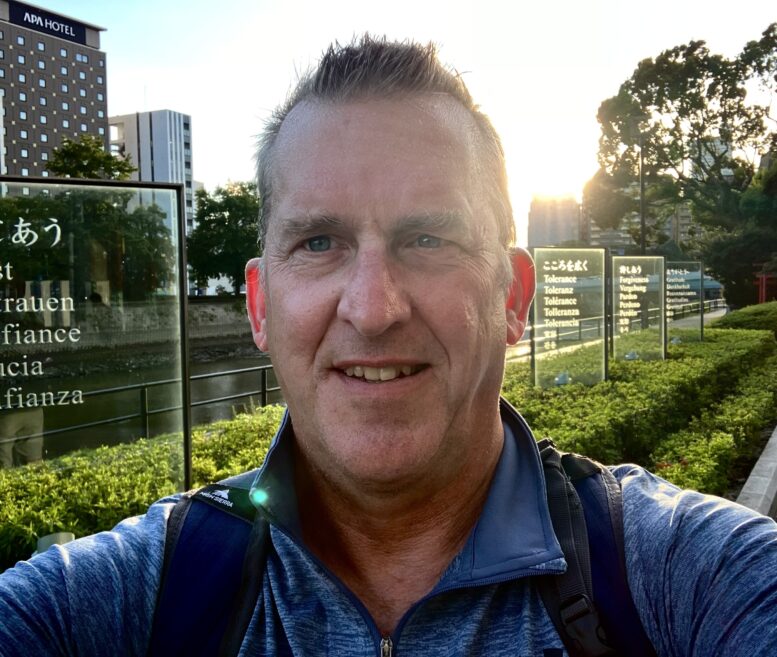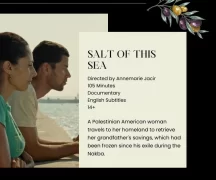By DAVID DUPONT
BG Independent News
The bloodshed in the war in Gaza between the Israeli government and Hamas is of historic proportions.
On Oct. 7, a terrorist incursion into Israel by Hamas claimed the lives of at least 1,200 people, mostly civilians including infants and the elderly. That’s the most Jews killed in a single day of violence since the Holocaust.
Israel’s retaliatory attack on Gaza to destroy Hamas has claimed more than 18,000 lives, mostly civilians, including infants and the elderly. And the death toll keeps rising.
While seemingly unprecedented, this war is the latest in a pattern of violence that’s plagued the region, said Marc Simon, BGSU professor of political science and the coordinator of the Peace and Conflict Studies Program. He’s done extensive research on international relations, including in the Middle East, though he’s never visited the region.
“Both sides are victimized,” he said.
This is a long-standing conflict over land with the Palestinians seeking their own state that they control. While the Israelis refuse to give up land and allow settlers to encroach on Palestinian land.
Periods of stasis lead to attacks that forces international talks and then radicals who oppose the peace effort move to derail it. People give up. The situation festers, until more violence drives it back to the headlines.
“Generally, what happens is the Palestinian side commits terrorist attacks to try to provoke Israel to overreact and commit more violence against the Palestinians and what this does is put the issue back on the agenda,” Simon said.
The Oct. 7 attack “was certainly as bad as anything in the last 50 years,” he said. The surprise of the sudden attack , the taking of hostages, and “the flat-out massacres triggers all kinds of trauma in the Jewish community,” he said.
“I see the similarities to 9/11,” he said. “It struck such a traumatic core. In Israel they weren’t going to think hard about their reaction: It was going to be very violent. … “Hamas consciously massacred at least 1,200 Israeli citizens knowing the Israel would attack and bomb Gaza, knowing that would kill tens of thousands of their own people, their own children. That was their strategy. That was pretty hideous,” Simon said.
“It doesn’t mean the Israelis have to fall for it.”
The overreaction also builds support for the Palestinians throughout the Arab world.
In the 1960s, the attacks were about letting people know that the Palestinians were a people, and they wanted a state. “The Palestinians don’t have a state and there’s been no progress in the last 20 years,” Simon said.
Through the Abraham Accords, Israel has been normalizing relations with Muslim countries. The process, mediated by the U.S., had established diplomatic relations between the State of Israel and the United Arab Emirates, Bahrain, Morocco, and Sudan.
Saudi Arabia was in negotiations with Israel to do the same. “Hamas did not want the Saudis to sign a separate peace with Israel,” Simon said. If it did it would mean to Hamas that “the Arab world has given up on us.”
Hamas has succeeded, Simon said, “ because now the Saudis can’t do that, nor can any other country do that for the foreseeable future.”
Simon said he’d hoped the ceasefire of two weeks ago would have been extended until all the hostages were released. But that didn’t occur.
“Hamas should stop now,” he said. If no one is shooting at Israel there is more pressure for them to stop.”
Benjamin Netanyahu and Hamas, which has sworn to destroy Israel, are “objective allies.” Both oppose two-state solution, in which the Palestinians have their own homeland. That’s been the basis of peace plans since 1967, Simon said.
Despite strong opposition from the left, the right has remained in power.
Netanyahu was first elected prime minister in 1996 after the assassination of Prime Minister Yitzhak Rabin by a far-right law student who opposed the Oslo Accords.
Hamas launched a series of suicide attacks which played into the hands of Likud, helping it defeat Shimon Peres who was deemed Rabin’s likely successor and a supporter of the accords.
Netanyahu and the right are selling the Israeli public on the idea that the status quo is fine. “Every once in a while, we’ll have to bomb in Gaza because they throw rockets at us,” the thinking goes, Simon said, “and every so often we’ll have to deal with Hezbollah in the north because they’re going to launch rockets. We can provide security. We don’t have to deal with the Palestinian question. The status quo is fine.”
In the meantime, they continue to increase settlements in the West Bank. Simon said there are an estimated 450,000 settlers in the West Bank, and others in East Jerusalem.
The settlers were pulled out of Gaza, which Hamas controls, and a barrier was put up.
None of that worked on Oct. 7.
Simon expects the Netanyahu government will fall. The prime minister is fighting corruption charges and opposition to his plan to remake the judicial system. If a centrist government takes power, and with Hamas crushed, there may be hope.
Fatah which controls the West Bank though, has its own corruption charges, and an aging leadership. Fatah, Simon noted, renounced terrorism 25 years ago. There are young leaders in the wings.
What would such a deal look like? The Palestinians would get statehood and control of the West Bank and Gaza. There would have to be some land swaps. The Palestinians would maybe only have a police force. And both Israel and the Palestinians would have their capital in Jerusalem. “It can be done,” Simon said.
But first the fighting must stop.
And with it the intensity of the dispute in the United States. Simon said he was surprised that a Cleveland radio station, and then a television station, reached out to him as an expert. There are plenty of Middle East experts in the universities in Northeast Ohio, he said. But, he understands, that “this is “always a touchy issue . It’s full of land mines.” So, a lot of scholars choose to steer clear of commenting. Simon said so far, the response he’s gotten has been civil.



